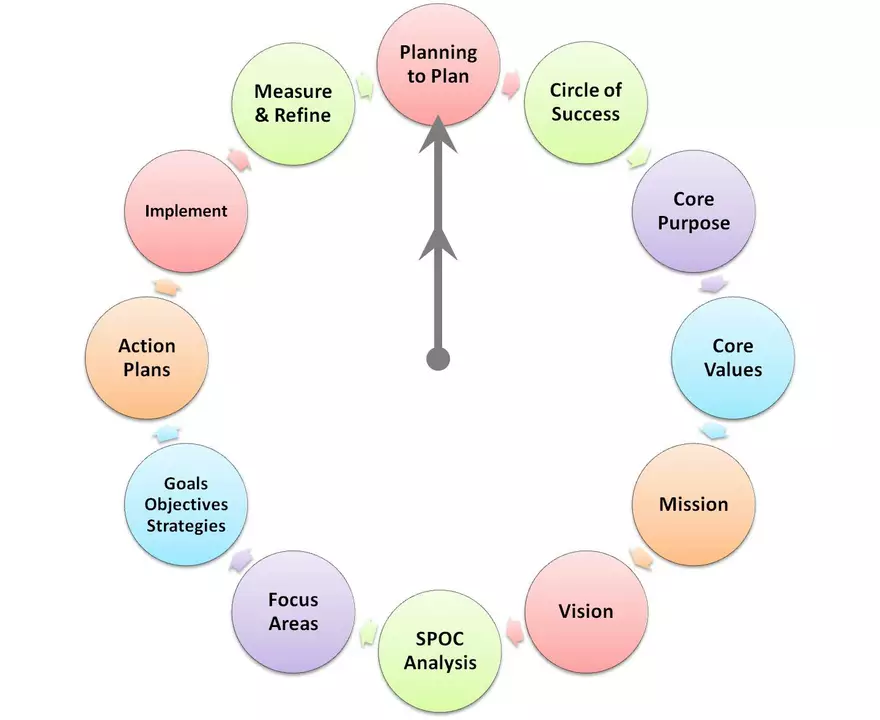Understanding the Purpose of a Business Plan
A business plan is a vital document for any entrepreneur or business owner. It serves as a roadmap, guiding you through the various stages of your business journey. It helps you to set goals, determine the necessary resources, and plan for potential challenges. A well-crafted business plan is essential not only to secure funding from investors or loans from banks, but also to help you stay on track and focused on your objectives.
As a business owner, I've found that creating a business plan gives me a sense of direction and a clear vision for the future. It helps me to identify my target audience, analyze my competition, and develop effective marketing strategies. In this article, we'll explore the different components of a business plan, and why it's crucial for every business to have one.
Executive Summary: A Snapshot of Your Business
The executive summary is the first section of your business plan, and it's arguably the most important one. It provides a brief overview of your business, including its mission, vision, and goals. It should also highlight your target market, competitive advantages, and financial projections. The executive summary should be concise, yet compelling enough to encourage potential investors or partners to read the rest of your plan.
When I write my executive summary, I make sure to emphasize the unique aspects of my business, showcasing what sets it apart from the competition. This section should be written last, after you've completed the other sections of your business plan, as it's easier to summarize your ideas once they're fully fleshed out.
Company Description: Who You Are and What You Do
The company description section of your business plan delves deeper into the details of your business, providing more information about its structure, ownership, and history. This section should also explain your products or services, and how they fulfill the needs or solve the problems of your target customers. Additionally, it's crucial to outline your business's values and objectives, as well as the unique selling points that differentiate you from your competitors.
When I describe my company in my business plan, I make sure to cover all aspects of my business, from its inception to its current state. This helps potential investors to understand the full scope of my business, and it allows me to identify areas where I need to improve or expand.
Market Analysis: Understanding Your Industry and Competition
The market analysis section of your business plan is where you demonstrate your knowledge of the industry, your target market, and your competitors. This section should include a thorough examination of your industry's size, growth potential, and trends. You should also identify your target customers, their needs and preferences, and how your products or services can meet those needs.
Additionally, it's essential to analyze your competitors, their strengths and weaknesses, and the opportunities and threats they present to your business. When I conduct my market analysis, I make sure to gather as much data and information as possible, using reputable sources like industry reports, surveys, and case studies to support my findings. This helps me to make informed decisions and build effective strategies to achieve my business goals.
Organization and Management: Defining Roles and Responsibilities
One of the key elements of a successful business is a well-structured and efficient organization. In this section of your business plan, you need to outline your company's organizational structure, detailing the roles and responsibilities of each team member. This includes positions like the CEO, managers, and employees, as well as any partners, advisors, or board members.
When I create my organization and management section, I make sure to include the skills, qualifications, and experience of each team member, highlighting how they contribute to the success of my business. This helps potential investors to understand how my team is equipped to handle the challenges and opportunities that come with running a business.
Marketing and Sales Strategies: Reaching Your Target Customers
A crucial part of your business plan is the marketing and sales strategies section, where you outline how you plan to reach your target customers and generate revenue. This includes defining your marketing objectives, selecting the most effective marketing channels, and developing a strong brand identity. You should also detail your sales process, from lead generation to customer conversion and retention.
When I develop my marketing and sales strategies, I ensure that they align with my overall business goals and objectives. I also make sure to monitor and measure the success of my strategies, adjusting them as needed to optimize their performance and keep my business on track for success.
Financial Projections: Planning for Profitability
The final section of your business plan is the financial projections, which provide a detailed overview of your business's financial health and profitability. This includes sales forecasts, income statements, balance sheets, and cash flow statements. You should also include any funding requirements, along with a break-even analysis to demonstrate when your business will start generating profits.
When I create my financial projections, I make sure to base them on realistic assumptions and well-researched data. This helps to provide potential investors with a clear picture of my business's financial potential, and it allows me to plan for the future and ensure that my business remains financially sustainable.
